Happy Tuesday! If Trump memecoins aren’t your thing, how about a Trump cologne? For just $199 a pop, you can purchase your very own bottle of “Trump fragrance.” The online storefront assures us that the “Fight Fight Fight” collection will be your “Rallying Cry In A Bottle.”
Quick Hits: Today’s Top Stories
- The Senate kicked off a “vote-a-rama” on Monday, allowing senators to propose an unlimited number of amendments to the budget reconciliation megabill that contains President Donald Trump’s legislative agenda. The amendment votes were continuing this morning, and Senate Majority Leader John Thune can only afford to lose the support of one additional Republican senator after Sens. Rand Paul and Thom Tillis have committed to voting against the package. On Monday, the Senate voted in favor of a new accounting method in which the extension of the 2017 tax cuts does not count toward the budget deficit, thereby reducing—on paper—the projected $3.3 trillion the bill will add to the federal deficit to $508 billion.
- Canadian Prime Minister Mark Carney said Sunday that trade talks with the U.S. have resumed, two days after Trump said that he was suspending negotiations and threatened to impose new tariffs on our northern ally. The talks collapsed over Canada’s 3 percent digital services tax on U.S. technology companies, which was implemented last year but was set to begin payment collection on Monday. On Sunday, Canada’s government said that it would scrap the tax, which would have required American tech companies to pay an estimated $2.7 billion.
- Dozens of Israelis rioted near an Israel Defense Forces (IDF) base in the West Bank on Sunday night, setting fire to a security installation in the latest back-and-forth between the Israeli military and far-right settlers. According to IDF officials, the protesters slashed tires, set fires, sprayed graffiti, and used pepper spray to attack Israeli soldiers. The clashes came after the military fired warning shots at settlers who ambushed a patrol on Friday and followed recent conflicts between Israeli settlers and Palestinians in the West Bank.
- The Trump administration on Monday accused Harvard University of being in “violent violation” of federal civil rights laws, citing its failure to protect Jewish students on campus. In a letter to Harvard President Alan Garber—first obtained by the Wall Street Journal—government officials said that an investigation found that the university violated Title VI of the Civil Rights Act, which bans discrimination on the basis of race, color, or national origin. Harvard disputed the assertions, saying that it had taken steps to address antisemitism on campus. The accusation continues a prolonged fight between Harvard and the Trump administration, and it puts further federal funding to the university at risk, including student aid. Harvard was in talks with the White House to reach a resolution, but the negotiations reportedly have stalled.
- Law enforcement on Monday identified a 20-year-old Idaho man as the suspect in an ambush of a group of firefighters on Sunday, which left two dead and another wounded. Police said the man intentionally set a fire on Canfield Mountain in Idaho to lure firefighters to the scene, where he opened fire from a sniper position in a shooting that lasted several hours. The injured firefighter is in stable condition. Law enforcement officers found the suspect dead near a firearm on the mountain, but they have yet to identify a motive for the attack.
- Karen Diamond, an 82-year-old victim of the antisemitic attack in Boulder, Colorado, last month, has died of her injuries, prosecutors announced Monday. Diamond was participating in a peaceful demonstration in support of the Israeli hostages held in Gaza when a 45-year-old Egyptian man attacked the gathering using Molotov cocktails, and prosecutors Monday said the number of victims stood at 29. Prosecutors filed two first-degree murder charges against the assailant on Monday. “This horrific attack has now claimed the life of an innocent person who was beloved by her family and friends,” Michael Dougherty, the Boulder County district attorney, said in a statement.
- The Supreme Court on Monday agreed to hear a major case challenging campaign finance restrictions. In the case, which will likely be argued in the fall, the court will revisit its 2001 ruling upholding restrictions on how much political parties can pay for campaign advertising with candidate input. The case was brought by the National Republican Senatorial Committee, the National Republican Congressional Committee, and the campaigns of then-Sen. J.D. Vance and former Rep. Steve Chabot.
A Final SCOTUS-Palooza
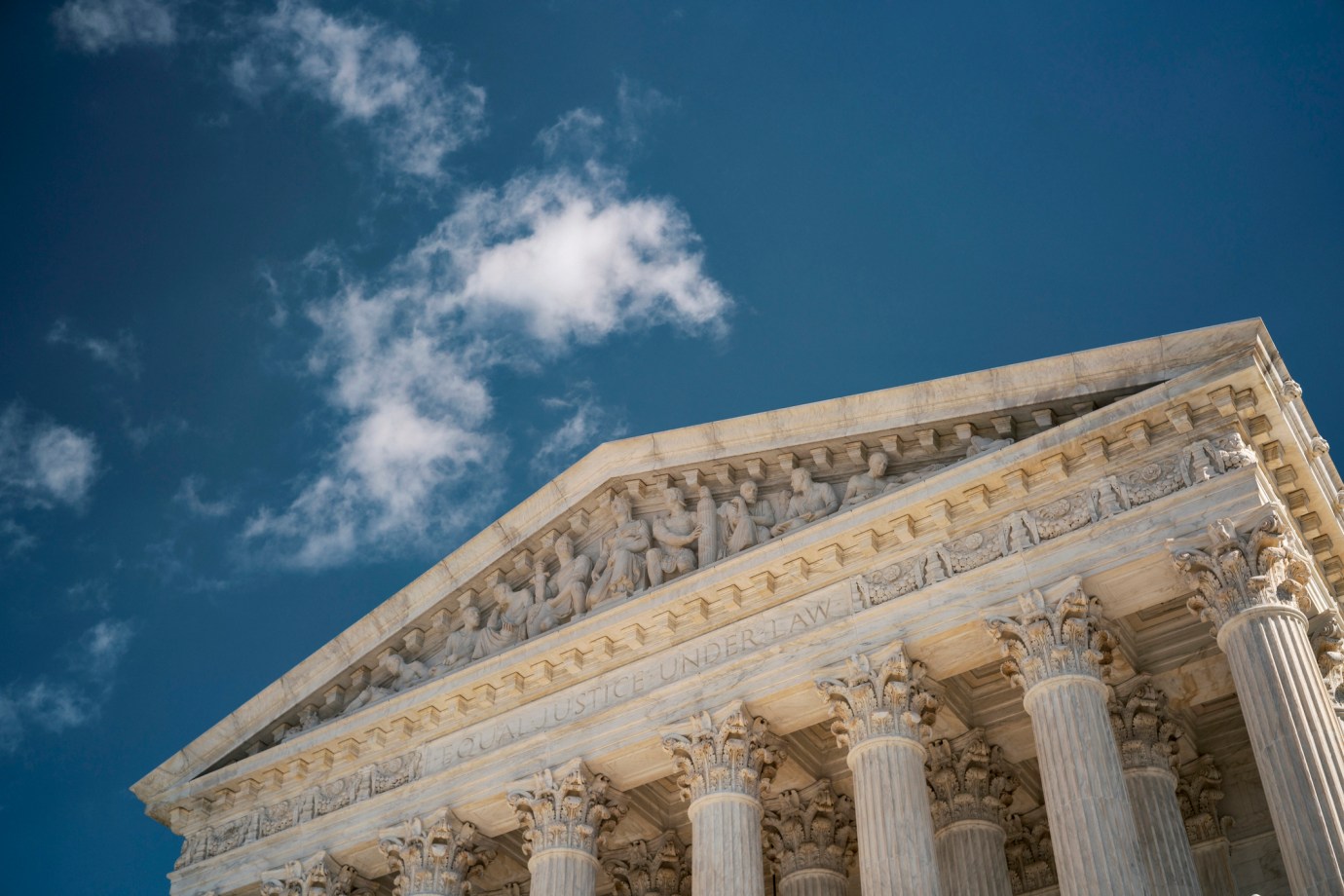
The Supreme Court handed down its final decisions on several major cases on Friday, capping off a 2024-25 term that addressed issues ranging from religious freedom to reverse discrimination to judicial overreach. Here’s a look at the most important rulings to come out of the high court’s busy docket:
Trump v. CASA
One of the Supreme Court’s final rulings of the term was also among its most controversial. In a 6-3 decision on Friday, the justices limited the power of federal courts to block President Donald Trump’s agenda through nationwide injunctions. The decision came in response to three lower court rulings halting the implementation of Trump’s executive order ending birthright citizenship for children born to parents in the U.S. temporarily or illegally. But the Supreme Court didn’t address the legality of the birthright citizenship order itself, focusing instead on the expansive—and relatively new—power of district courts to put sweeping holds on federal government policy.
After three federal judges in Massachusetts, Maryland, and Washington issued injunctions preventing Trump’s order from taking effect nationwide, the administration argued that federal courts should award relief only to the parties to the suit. And it seems the high court agreed. Writing the majority opinion, Justice Amy Coney Barrett explained how the practice of granting universal injunctions came about fairly recently: “The universal injunction was conspicuously nonexistent for most of our Nation’s history,” she wrote, adding: “When a court concludes that the Executive Branch has acted unlawfully, the answer is not for the court to exceed its power, too.”
And indeed, legal analysts have argued that the powerful judicial tool has prevented Republican and Democratic presidents alike from governing effectively. “In the last decade or so, the nationwide injunction has basically been a veto on the executive branch. When the president does something, a district court judge blocks it. Now, I think it’s harder to do that,” Josh Blackman, a constitutional law professor at the South Texas College of Law, told TMD. “Courts are designed to grant relief to parties before them,” he added, “not everyone in the world.”
So, where does the decision leave birthright citizenship? For now, the issue will remain unresolved—the high court sent the cases back to the lower courts, where federal judges will adjust their rulings accordingly. In the meantime, Trump’s executive order will remain paused for at least 30 days from Friday.
In this ruling and others of the term, Case Western Reserve University professor Jonathan Entin said he was struck by “the extent of deference to or sympathy for executive power,” noting that nearly all of the Republican-appointed justices (with the exception of Barrett) worked in the executive branch at some point in their career. “Where you stand depends on where you sit,” he told TMD. “If your prior governmental experience has been in the executive branch, you’re likely to have thought about things from an executive branch perspective.”
Others have argued the ruling is not an outright win for the Trump administration as it seeks to push its birthright citizenship order through. Barrett expressly left open the possibility of nationwide block through class-action litigation, and, as of Monday, at least two class-action suits challenging the order have been filed. William Powell, a lawyer who filed one of the suits and senior counsel at the Institute for Constitutional Advocacy and Protection at Georgetown Law, told reporters Friday that he believed the relief would be “just as effective, just as broad as the nationwide injunction that was previously in place.”
Free Speech Coalition v. Paxton
Also on Friday, the Supreme Court upheld Texas’ ability to enforce a law that seeks to shield minors from sexual content online. An adult entertainment trade association argued that the legislation, by requiring people to verify their ages on porn websites, violated the First Amendment by interfering with adults’ ability to access protected speech. But in a 6-3 decision split along ideological lines, the justices affirmed the state’s authority to require age verification for such websites.
The ruling could have nationwide reverberations, with at least 20 states imposing age limits on sensitive content online. It also suggests a new approach from the high court, which in the 2004 case Ashcroft v. American Civil Liberties Union, also known as Ashcroft II, struck down a federal law seeking to regulate online content deemed harmful to minors. Writing for the majority, Justice Clarence Thomas attributed the shift to changing circumstances: “With the rise of the smartphone and instant streaming, many adolescents can now access vast libraries of video content—both benign and obscene—at almost any time and place, with an ease that would have been unimaginable at the time of … Ashcroft II.”
United States v. Skrmetti
In another 6-3 decision dividing conservative and liberal justices, the court upheld a Tennessee law that bars medical providers from providing hormone therapy and puberty blockers to transgender minors. Three transgender teenagers, together with their parents and a doctor, argued that the ban constituted a violation of the 14th Amendment’s equal protection clause, which requires the government to treat similarly situated individuals equally. But the 6th Circuit Court of Appeals allowed the law to take effect, and, in June, the Supreme Court affirmed its decision.
Writing for the majority, Chief Justice John Roberts maintained that the law is not subject to heightened scrutiny because it bars health care providers from offering the treatments to minors “for certain medical uses” regardless of their sex. According to an analysis by KFF, similar bans in 25 states will stand as a result of the ruling.
Ames v. Ohio Department of Youth Services
In a unanimous decision last month, the Supreme Court sided with an Ohio woman who claimed she was discriminated against after her employer denied her a promotion because she is heterosexual. The justices rejected a lower court ruling stating that members of a majority group must meet a heightened bar to prove that they’ve been the victim of discrimination.
Justice Ketanji Brown Jackson penned the court’s nine-page decision, arguing that employment discrimination law extends protections to individuals under the same standards. “By establishing the same protections for every ‘individual’—without regard to that individual’s membership in a minority or majority group—Congress left no room for courts to impose special requirements on majority-group plaintiffs alone,” she wrote.
Oklahoma Statewide Charter School Board v. Drummond
This Supreme Court has often sided with religious institutions seeking funds that are available to secular recipients. But in a May decision from which Barrett recused herself, the court was evenly divided on whether the state of Oklahoma can put public funding toward the country’s first religious charter school.
The case began in 2023, when an Oklahoma school board approved an online Catholic school formed with the explicit purpose of furthering “the evangelizing mission of the church.” Oklahoma’s Attorney General Gentner Drummond, a Republican, filed a lawsuit with the state’s Supreme Court, arguing that a taxpayer-funded religious school would violate both state law and the U.S. Constitution. The Oklahoma Supreme Court agreed, blocking the school’s establishment, and the U.S. Supreme Court’s split order left that ruling in place.
Mahmoud v. Taylor
In a 6-3 ruling on Friday, the high court ruled in favor of Maryland parents seeking to opt their elementary school children out of lessons related to sexual orientation and gender identity due to religious objections. The decision reversed a lower court decision determining that simply encountering other views didn’t interfere with the children’s religious beliefs. In her dissent, Justice Sonia Sotomayor argued the decision posed a threat to “the very essence of public education.”
Writing for the majority, however, Justice Samuel Alito contended that the school board’s decision to read children LGBTQ-themed books without notifying their parents—and allowing them the opportunity to opt their students out—“substantially interferes with the religious development of their children and imposes the kind of burden on religious exercise” that the Supreme Court ruled against in the 1972 case Wisconsin v. Yoder, which upheld right of Amish parents to pull their children out of school before the age of 16.
Today’s Must-Read

What We Can Learn From Bush’s Failed Social Security Reform
More From The Dispatch


The Road to Smurfdom
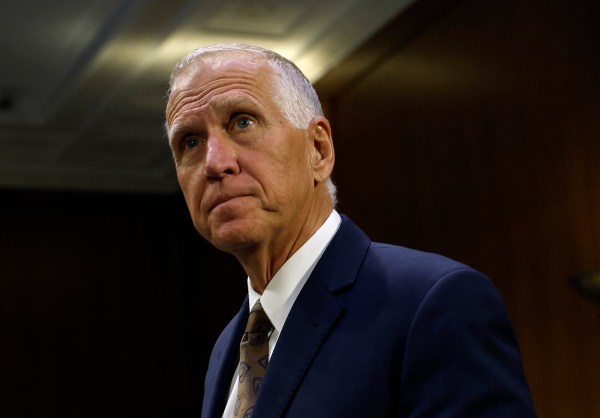
Senate GOP Resistance to Trump Needs a New Hope

No Room for Compromise?

How the U.S. Navy Can Find Its Sea Legs

What We Got Wrong in June


Justice Kagan’s Supreme Court
Worth Your Time
Writing for Law & Liberty, Andy Smarick (a frequent Dispatch contributor) explored the reasons why DOGE failed so spectacularly. “We will miss the most important lessons from DOGE if we look at it as a clumsily executed effort at cost-cutting. Instead, we must understand it as simply the latest failure of technocracy—another instance of the high price we pay for trusting supposed technical experts to do the work of republican governing. As I’ve written, there are two kinds of technocrats. The better-known variety comes from the left. They claim expertise because of their elite schooling and smarts. They promise to apply ‘scientific’ methods and dispassionate judgment to make government rational and efficient. They almost always seek a larger role for this newly sensible, streamlined government; under their care, they believe, the wise state can expertly manage schools, the economy, social services, housing, and so on,” Smarick wrote. “The less-discussed variety comes from the right. These technocrats typically claim expertise due to their private-sector chops. They’ve been consultants or run businesses. They are sure their organizational expertise, strong backbones, and agility with numbers can whip the government into shape. All too often, what unites the two is confident ignorance. Neither type really knows anything about governing. They’ve generally never served in any meaningful governing capacity before, and they are unaware of most of the history, rules, and duties of the entities they presume to fix. When made aware of such things, they routinely dismiss them as hindrances.”
Presented Without Comment
New York Times: Sound Familiar? Democrats Lay Groundwork for a ‘Project 2029’
Also Presented Without Comment
The Hill: Musk Pledges To Support Primary Challenges to Republicans Who Back Trump Megabill
In the Zeitgeist
The Martian, a movie based on an Andy Weir novel of the same name, was arguably one of the most entertaining films of the 2010s. More than 10 years later, we’re getting another Weir adaptation with Project Hail Mary, a film starring Ryan Gosling that’s set to hit theaters in 2026.
Let Us Know
Did any of the Supreme Court’s decisions this term surprise or upset you?





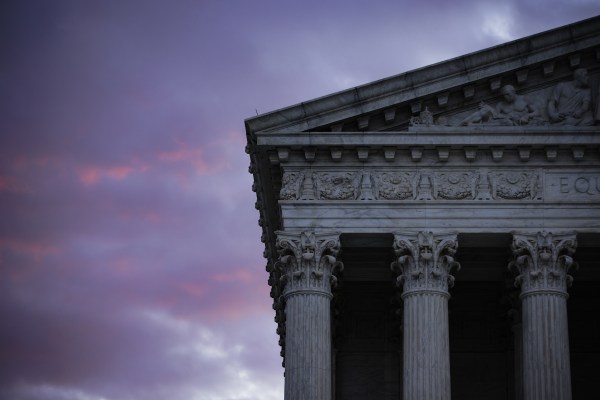
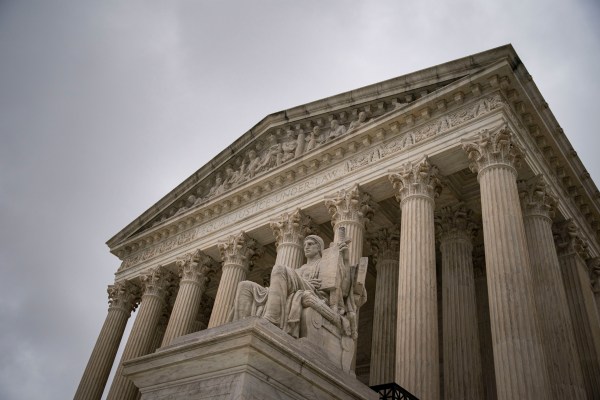
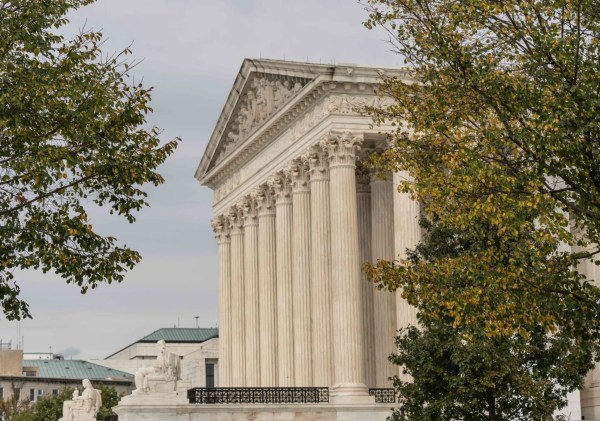





Please note that we at The Dispatch hold ourselves, our work, and our commenters to a higher standard than other places on the internet. We welcome comments that foster genuine debate or discussion—including comments critical of us or our work—but responses that include ad hominem attacks on fellow Dispatch members or are intended to stoke fear and anger may be moderated.
With your membership, you only have the ability to comment on The Morning Dispatch articles. Consider upgrading to join the conversation everywhere.